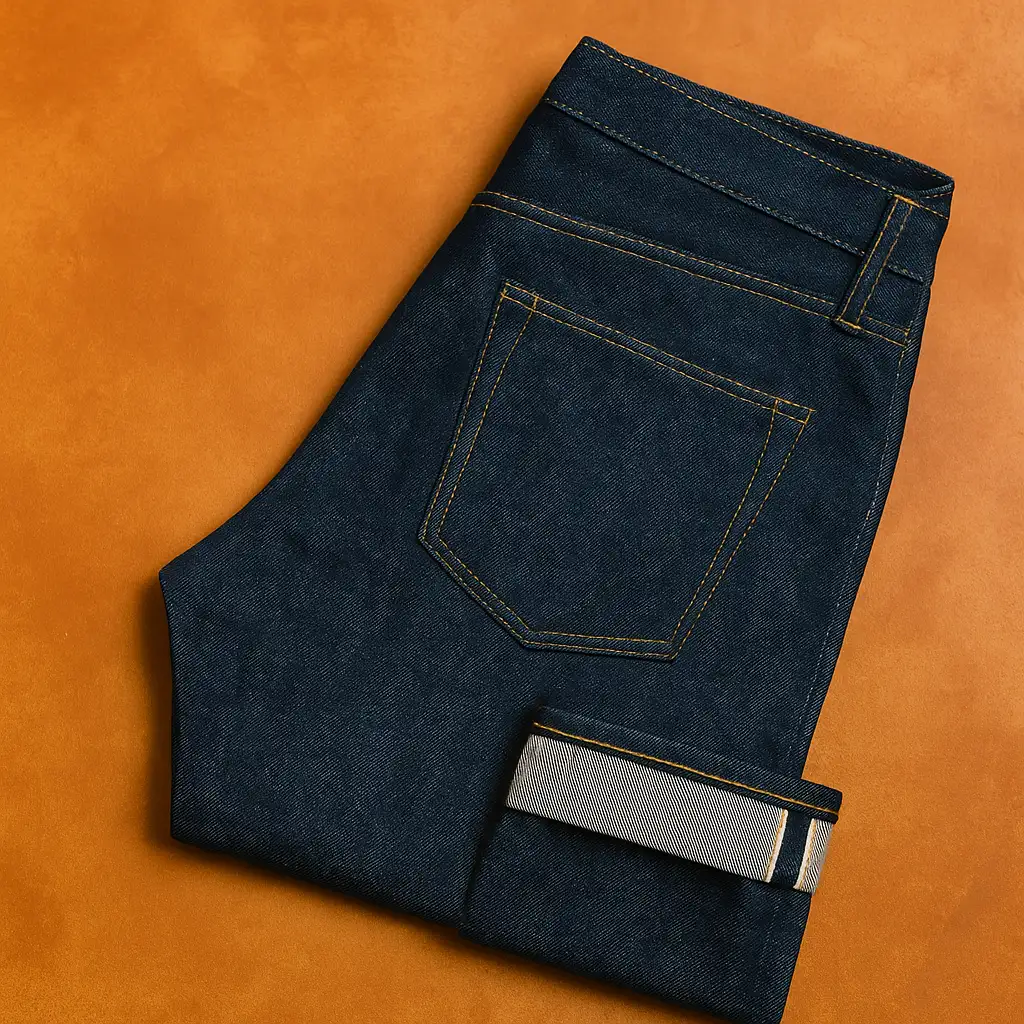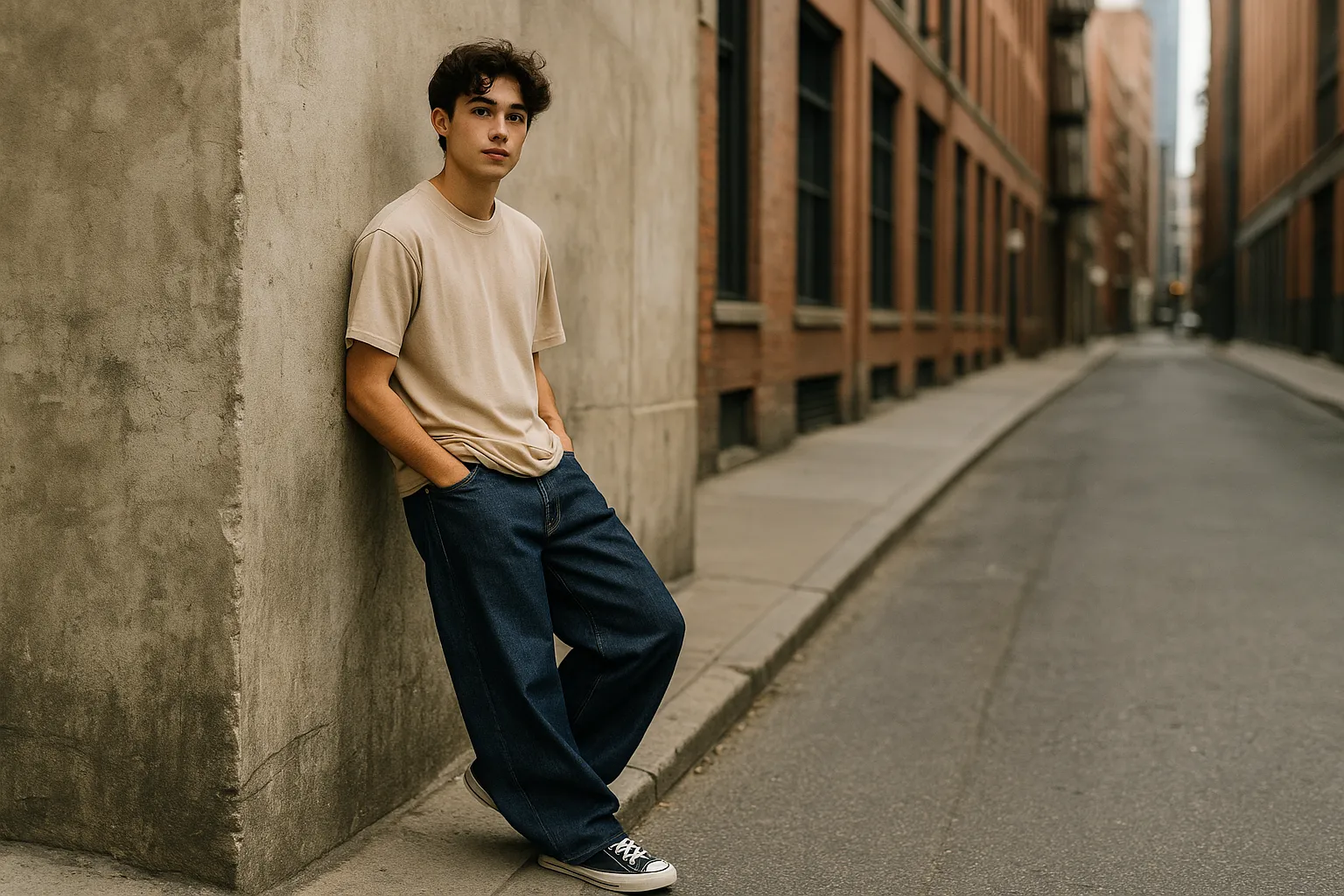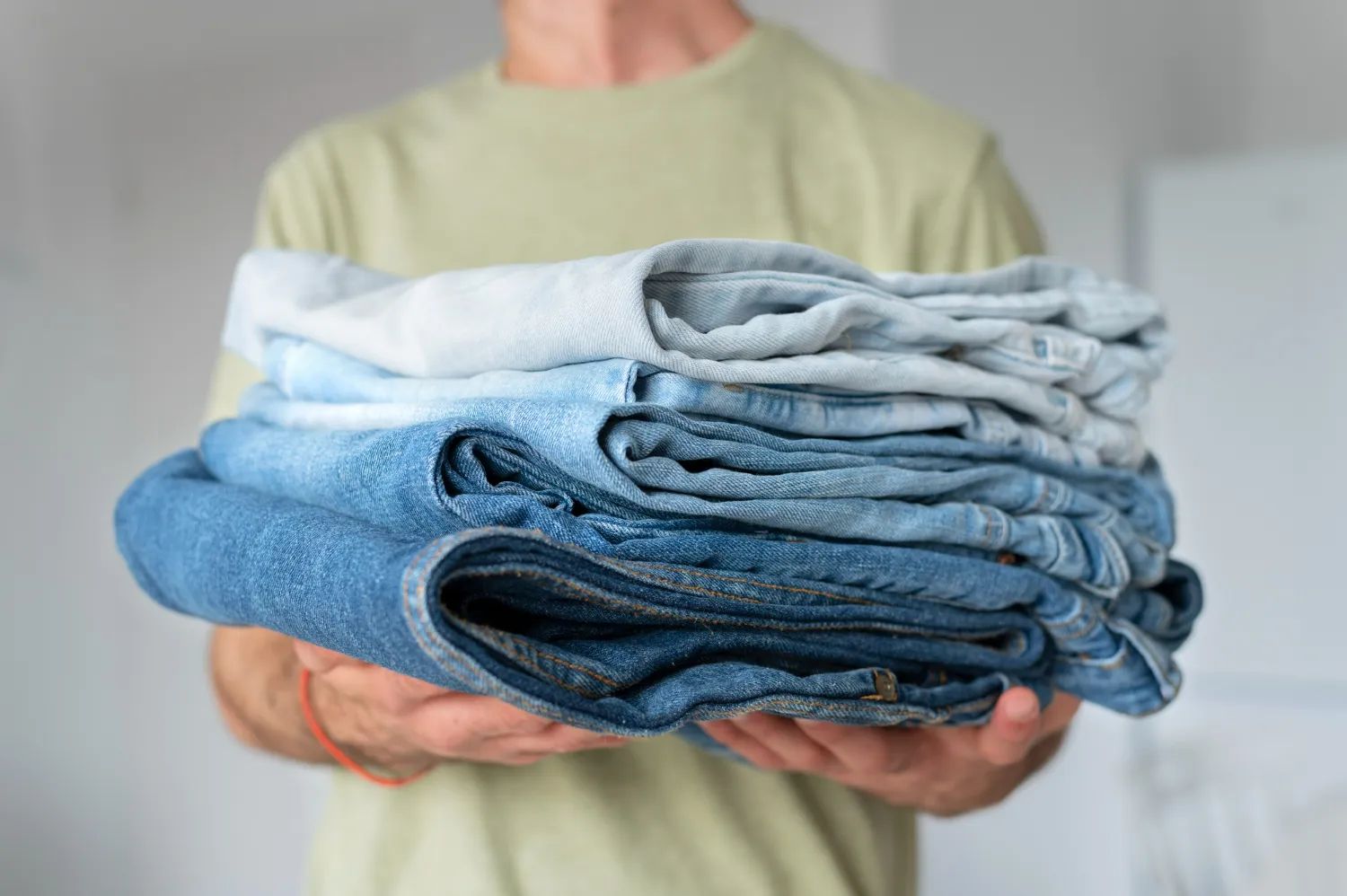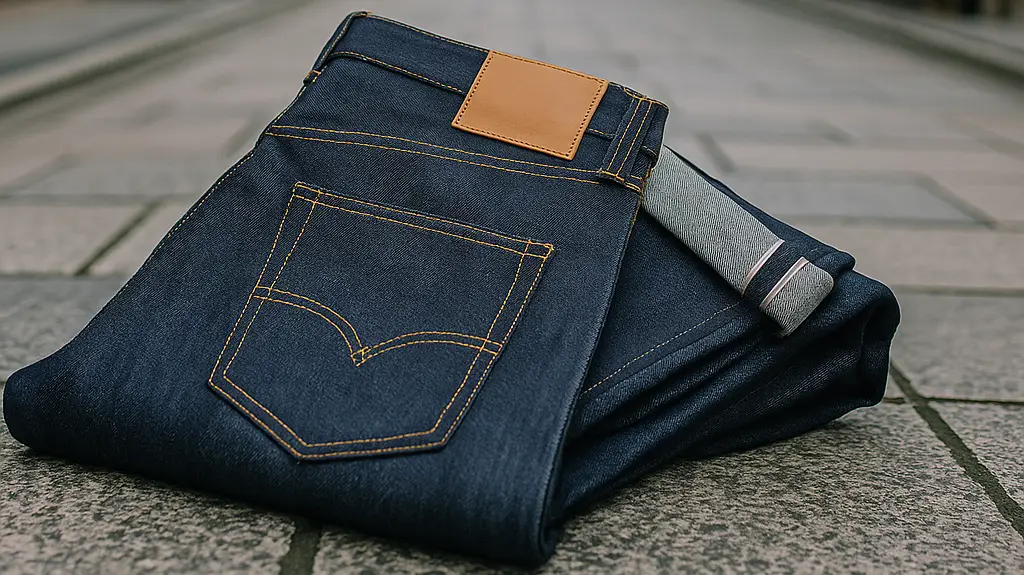What Is Selvedge Denim? The Essential Guide
BY BoringMonday
May 15, 2025

In a world filled with mass-produced jeans, one term continues to carry weight among denim purists: selvedge denim. But what is selvedge denim, exactly? From its old-school loom origins to its cult-like following, this fabric is more than just a fashion statement. It’s a commitment to quality, craftsmanship, and individuality. If you've ever wondered what makes selvedge denim so special, this guide is for you.
What Is Selvedge Denim?

Selvedge Denim Meaning
The term "selvedge" comes from "self-edge," referring to the natural edge of the denim fabric that prevents unraveling. Selvedge denim is typically woven on old-school shuttle looms, which produce narrower fabric with tightly bound edges. These edges are often marked by a colored thread—most famously, red—and visible when you cuff the jeans.
Key Characteristics
Clean, finished edges (no fraying)
Heavier and denser than regular denim
Typically raw (unwashed)
Unique fading patterns over time
Origins
Selvedge denim originated in the early 1900s and was used widely until the 1950s when faster, mass-production looms took over. Japanese manufacturers revived the tradition in the 1980s, making it a staple in high-end streetwear and denim enthusiast communities.
How Is Selvedge Denim Made?
Shuttle Looms vs. Projectile Looms
Shuttle looms weave the fabric in a continuous weft, creating a clean edge. Projectile looms, on the other hand, cut the fabric and leave frayed ends. Shuttle looms are slower and more expensive to operate, but they produce higher-quality denim.
Craftsmanship Over Speed
Selvedge denim production prioritizes durability, structure, and texture. The slow weaving process allows for imperfections that contribute to its unique, character-driven appeal.
Small-Batch Production
Most selvedge denim is produced in limited quantities. This makes every pair of jeans slightly different, particularly when left raw and broken in naturally.
Why Selvedge Denim Matters
Durability
The dense weave and quality cotton make selvedge denim long-lasting—often improving with age.
Personalization
Unlike pre-distressed denim, selvedge jeans fade and conform to your body and lifestyle, telling a story with every crease.
Sustainability
Selvedge denim is often produced using traditional techniques with less environmental impact. Many brands use organic cotton, reduce water usage, and prioritize ethical labor.
Raw vs. Washed Selvedge Denim
Raw (Dry) Selvedge
Unwashed and stiff
Ideal for creating custom fades
Takes time to break in
Washed Selvedge
Pre-washed to soften the fabric
Easier to wear immediately
May lose some "personality" potential
Pro Tip: If you want a truly personalized pair, go raw. Wear daily and wash only after a few months to let your natural fades show.
Best Selvedge Denim Brands in 2025
1. Naked & Famous
Affordable, experimental, and Canadian-made with Japanese fabrics.
2. Iron Heart
Heavyweight Japanese selvedge with extreme durability and biker appeal.
3. Oldblue Co.
Indonesia’s leading selvedge denim label offering rugged, heritage-inspired pieces.
4. Unbranded Brand
Minimal branding, maximum value. Great for those on a budget.
5. A.P.C.
French label known for clean design and high-quality raw denim.
Best Affordable Selvedge Denim Picks
Looking for the best budget selvedge denim? Here are a few options under $150:
Unbranded UB101
Gustin Regular Raw
Everlane Selvedge Slim Fit
Oldblue Co. Slim Straight 16oz
Each offers excellent build quality, classic style, and slow-fade potential.
How to Style Selvedge Denim
Casual Looks
Cuffed selvedge + white tee + sneakers = timeless
Oversized hoodie + slim selvedge for contrast
Elevated Fits
Dark indigo selvedge + button-up shirt + boots
Raw black selvedge + turtleneck for minimal chic
Selvedge Denim Care Tips
Wait 3-6 months before first wash (if raw)
Hand wash or cold soak inside out
Hang dry only
Avoid machine wash/dryers to preserve color and shape
Final Thoughts
So, what is selvedge denim? It’s more than just jeans. It’s a commitment to better craftsmanship, durability, and personal expression. Whether you’re seeking the best selvedge denim money can buy or exploring the best affordable selvedge denim for your first pair, this fabric remains timeless, stylish, and undeniably cool.
Topics :
Style Meets Substance
Find pieces that move with you. Every article has a story — now wear one that speaks yours.

Recommendation Fashion

Fashion
Baggy Raw Denim: The Comeback of Wide-Leg Jeans
May 15, 2025

Fashion
The Ultimate Guide to Y2K Fashion: A Nostalgic Revival
March 24, 2025

Fashion
How to Wash Denim Jacket Properly and Keep it Timeless
March 15, 2025

Fashion
Japanese Raw Denim: A Deep Dive into Craftsmanship and Culture
May 08, 2025